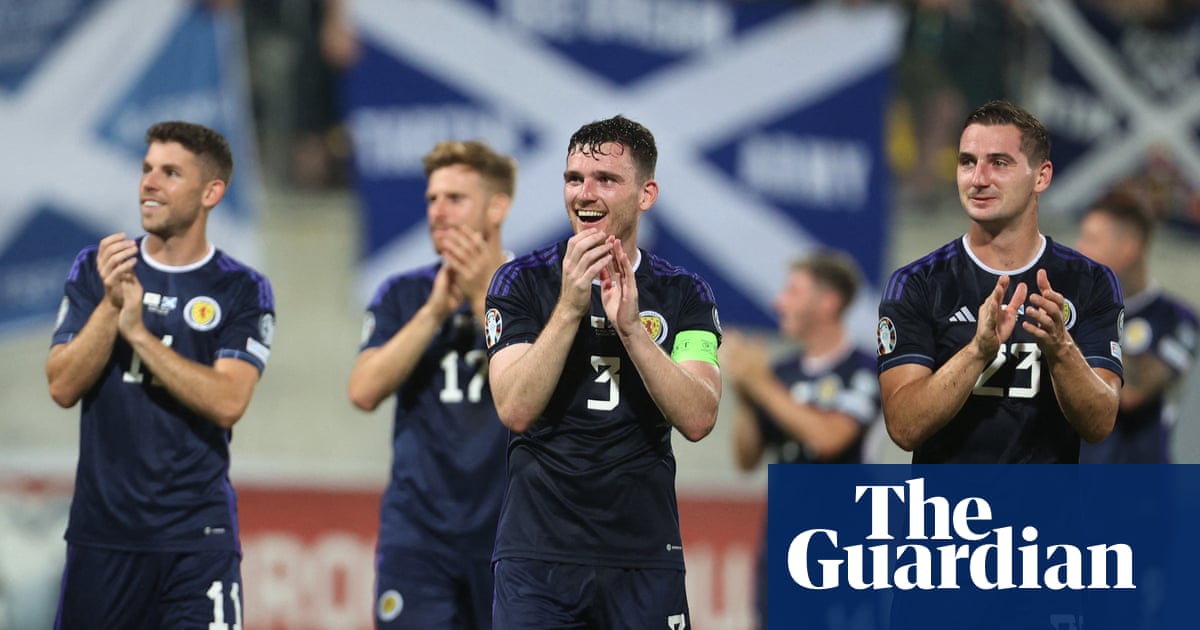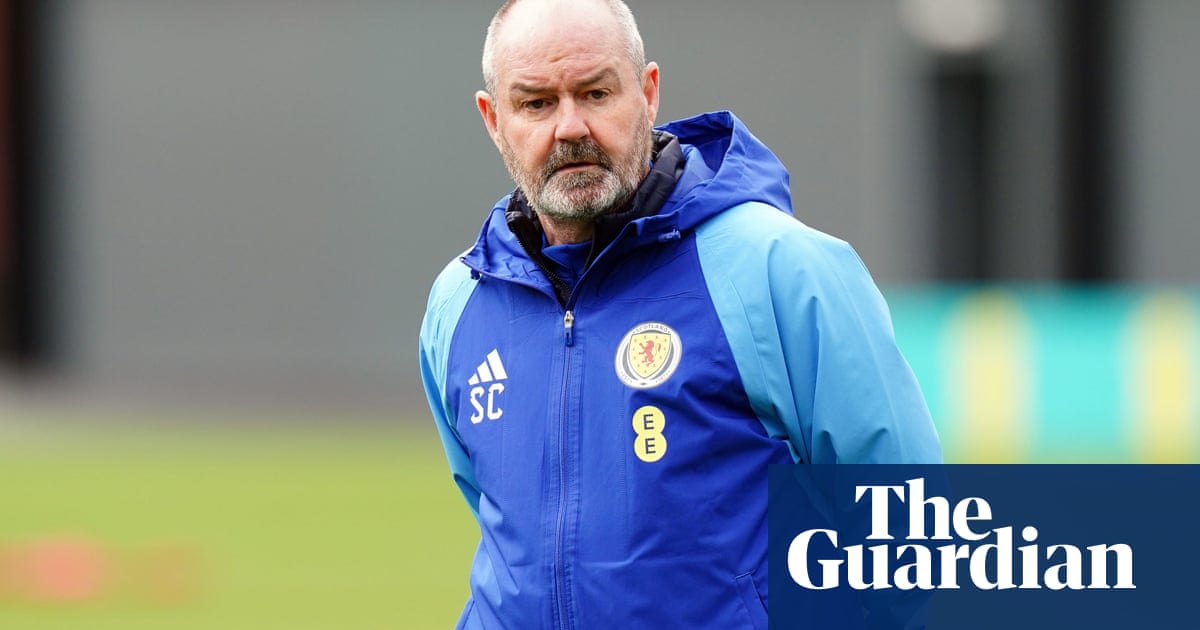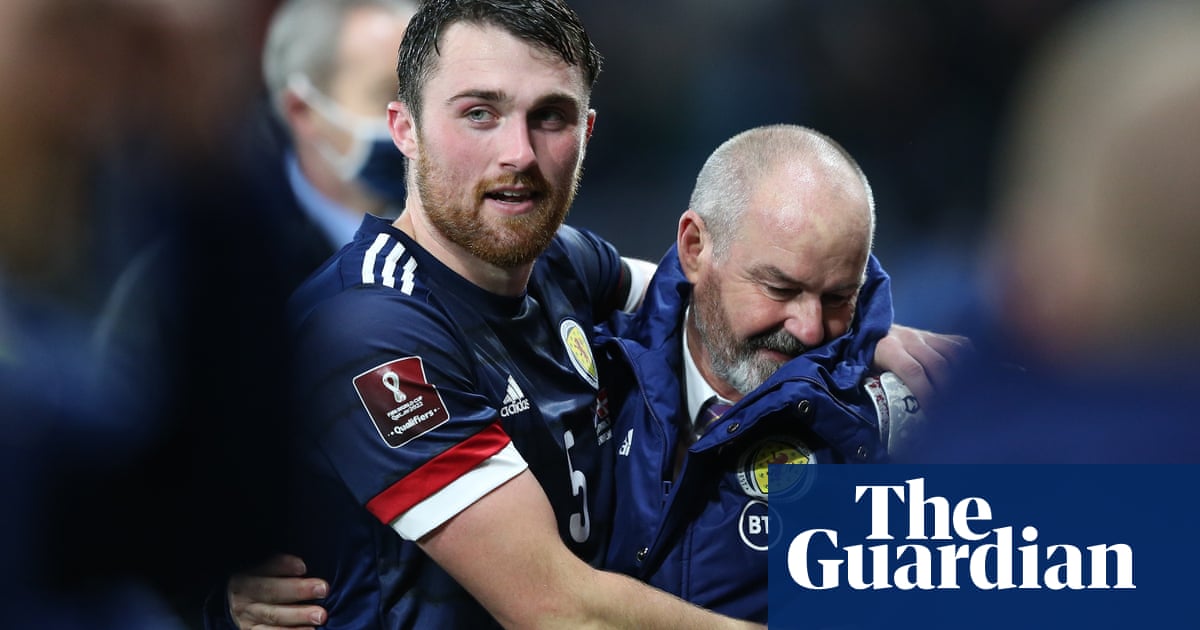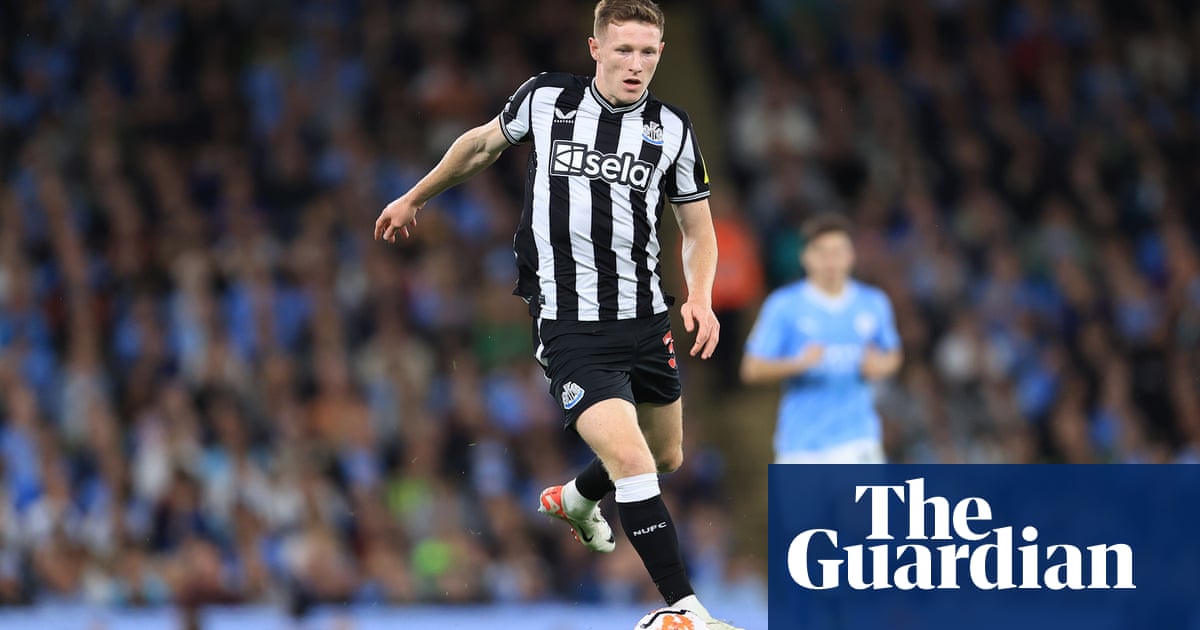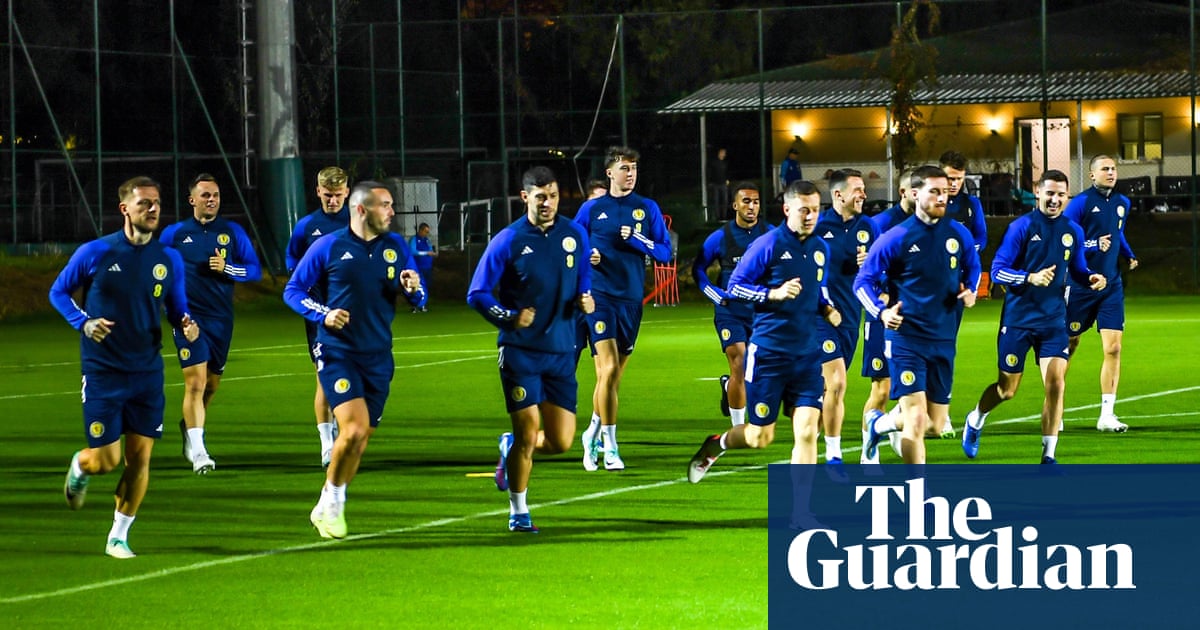
There was a time when Scotland spending the lead-up to a fixture in Georgia at a training base in Antalya would have be seen as ostentatious. With major tournaments flashing by without Scottish involvement, frugality was essential.
Demonstrable success means Scotland’s current manager, Steve Clarke, has his paymasters precisely where he wants them. When Clarke wanted a five-star hotel base in Glasgow, the Scottish Football Association agreed.
The stop-off in Turkey this week was booked long ago, on the basis that the match in Tbilisi on Thursday could be meaningful, but there was never any prospect of plans changing after Scotland sealed their place at Euro 2024 last month. Back-to-back European Championship qualifications have boosted the Scottish FA’s coffers. Clarke’s on-field work diverts attention from unimpressive custodians of the national sport. So, when the manager says jump …
Clarke approaches this double- header – Norway are in Glasgow on Sunday – with much to ponder. There has been a backdrop of celebration to Scotland securing a spot in Germany next summer but Clarke appears aware of the dangers of treading water. Defeat to France in Lille was hardly disastrous yet that was a third in a row for the Scots. The losing run sits uneasily with the man in charge.
Clarke agreed to friendlies with France and England – Spain also saw off Scotland in October – with the short- and medium‑term future in mind. Barring a lucky draw, Scotland progressing to the second phase of a major tournament for the first time depends on them excelling against elite opposition.
Thereafter, Clarke will lead his team into the top section of the Nations League; it’s a galling prospect given how dominant France and England (yes, they were relegated from Group A, but the point stands) were against Scotland. By virtue of nothing but their own strong showings, Clarke’s men face the quandary of how to take the next step.
The manager’s biggest victory has been emphasising the ability of the collective. There is no other way to explain Scotland emerging from a section where Erling Haaland’s Norway have been left behind. The team which earned a precious win over Spain earlier this year had Lyndon Dykes of Queens Park Rangers at centre-forward.
Scotland have talent, especially at wing-back and in midfield, but still lack a final-third difference-maker. Privately, Clarke must know that will be a problem as the stakes are raised. His resource pool remains small. Injuries to Andy Robertson and Kieran Tierney illustrate that much. The absence of Angus Gunn leaves the Scots glaringly short in the goalkeeping area. A patchwork side will close out the qualifiers.
Scotland are an attractive proposition. Clarke is confident enough in his environment not to ferociously pursue players who may qualify for his squad via bloodlines just because they see Scotland as a viable international platform. Archie Gray and Tino Livramento have been mentioned in recent days.
Elliot Anderson was briefly seen as the great Scottish hope. The Newcastle midfielder seemed ready to commit to Clarke’s team, only to beat a hasty exit from training before September’s trip to Cyprus. If Anderson – who is as Scottish as Paddington Bear – felt uneasy, he is due praise rather than criticism for backing away. This is a 21-year-old who is still trying to earn regular starts at club level. Anderson should be allowed to determine his own future.
More intriguing, on grounds of experience, was Scotland’s courting of Harvey Barnes. The 25-year-old also seemed ready to declare for the Scots before sustaining a serious foot injury. If Barnes returns to the Newcastle side in the new year, it is reasonable to think he could target the Euros. For that to be a serious prospect, Barnes would need to be picked and perform strongly in the March friendly window. Ché Adams declared for Scotland just months before the delayed Euro 2020 finals. Barnes would undoubtedly enhance Scotland.
Scotland’s Under-21 squad provides slim pickings. Ben Doak’s development at Liverpool has not been as rapid as many had predicted or hoped, which can partly be explained by injury. Doak’s direct running and pace would translate perfectly to Scotland’s senior team but he needs to be playing consistently at first-team level.
Scotland’s experiences in Georgia in 2007 and 2015 were wounding, defeats coming with qualification on the line. There is no such pressure this time. Clarke simply wants a return to the no-fuss winning culture which has served him so well. He will still see a bigger picture, which is essential if Scotland are to avoid making up the numbers in Germany.





